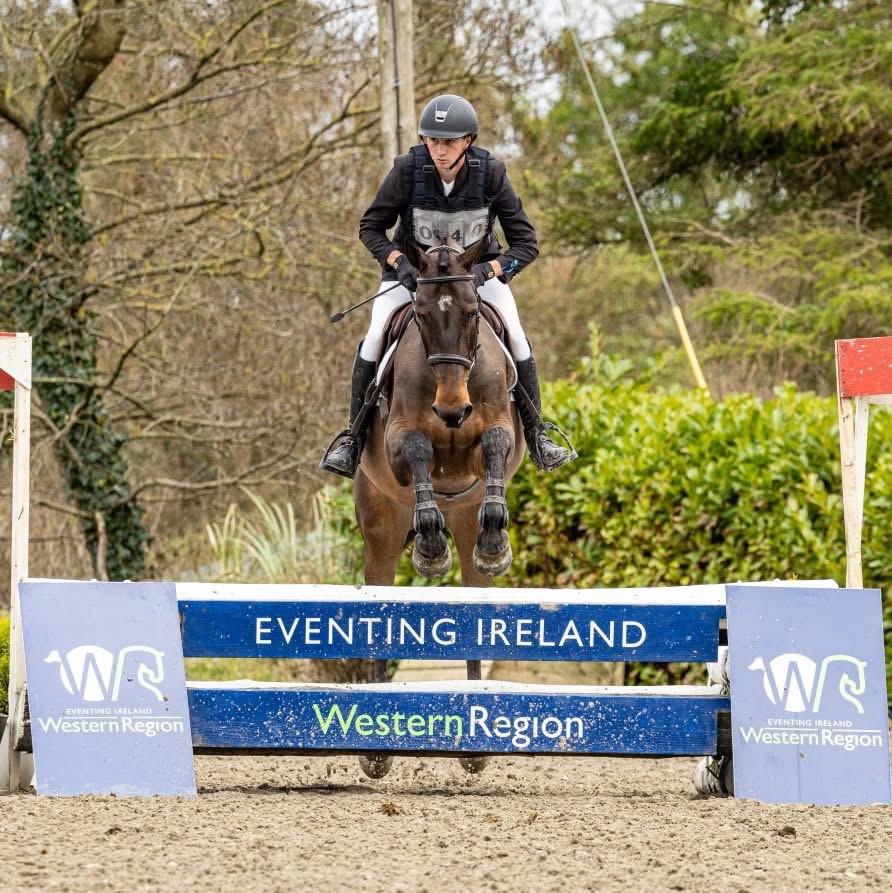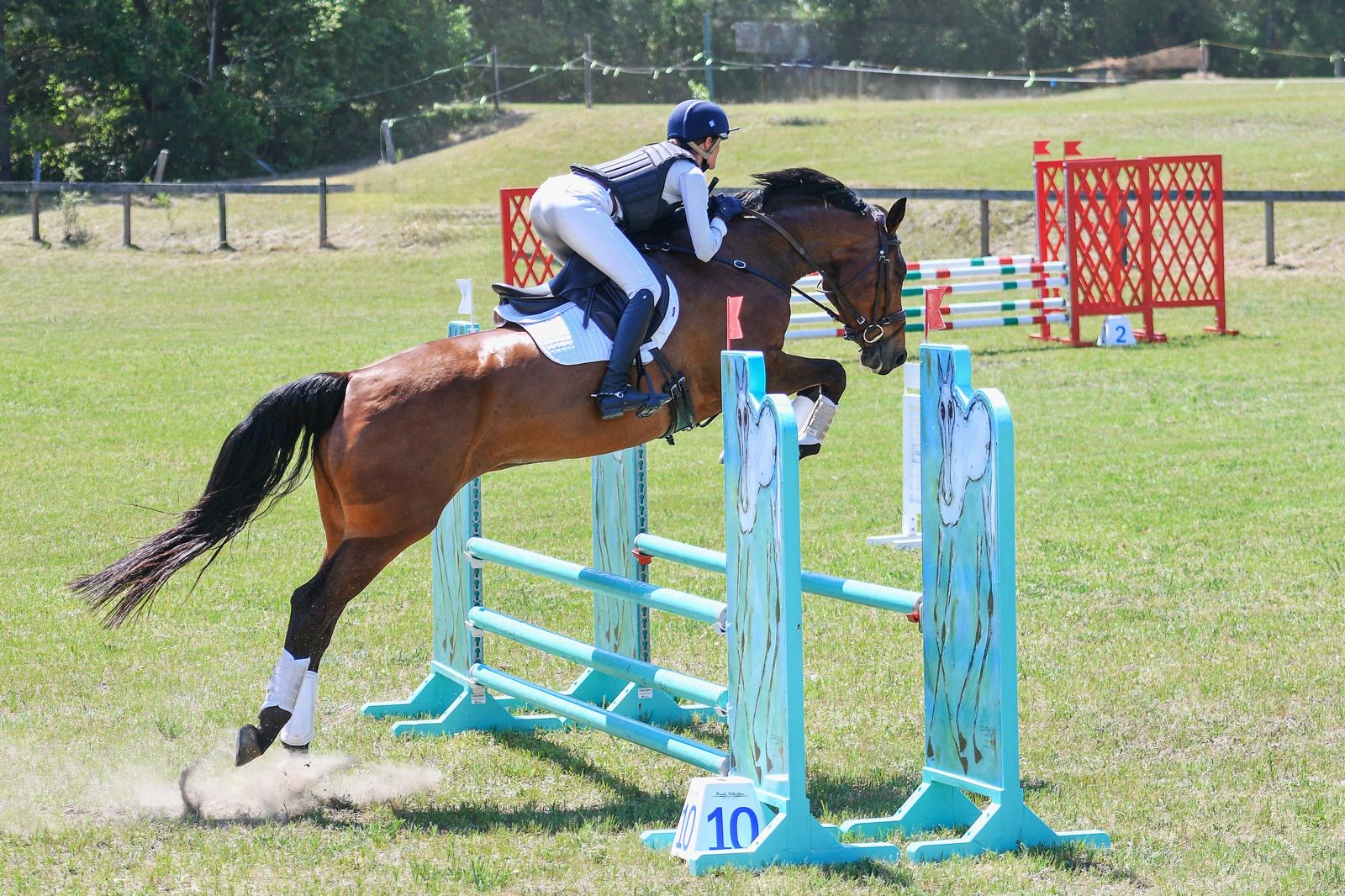Joining EN as a regular columnist, Tyler Held is a professional groom and Sport and Performance Psychology Consultant. You may have seen her over the last few years working for 5* rider Jennie Brannigan or listened to an episode of her podcast, The Whole Equestrian. Tyler started riding in summer camp at the age of 5 and essentially never looked back. She obtained her Undergraduate degrees in Animal Science and Equine Business Management from the University of Findlay in 2014. During this time, she spent her summers doing her first working student job at an eventing barn and quickly became obsessed with the sport. After experiencing some mental blocks in her own riding, she decided to focus on grooming and learning more about Sport Psychology. In 2017 she moved to Chester County, PA to work as a Vet Tech and groom for Dr. Kevin Keane, which opened a lot of doors in the eventing community. Just as she finished her Master’s Degree in Sport and Performance Psychology, she took the reins at Brannigan Eventing as head groom. Now partially retired from grooming, Tyler is focusing on finishing up her Doctorate and requirements to be a Certified Mental Performance Coach (CMPC).

Tyler Held, head groom for Jennie Brannigan, shares a moment with FE Lifestyle. Photo by Tilly Berendt.
Imagine you’re tacking up your horse up for competition. You go to tighten the girth and you start to notice that your hands are shaking. Your heartbeat gets louder and you start to find it difficult to breathe. You try to go through your cross country course but you find that your mind is filled with doubt. Thoughts like “I’m not good enough”, “that fence looks really big”, “I’ve fallen off at something similar to that before” or “don’t screw up” demand your attention.
You get on and try to tell yourself to breathe, but it’s too late — fear, panic, and uncertainty have sealed your fate for the day, and the results are far from desirable.
Now imagine you get to do it all over again. You have the same fears and doubts and yet you’ve learned to question, master, and control them. You’ve spent time practicing how to redirect negative thoughts, and you come into an event feeling confident and prepared. You still feel the butterflies in your stomach as you go to tighten your girth, but when you visualize your course you think to yourself “I’ve got this.” You are cool, calm and collected and while this doesn’t necessarily mean that everything is going to go according to plan, you are much better equipped to deal with things that do go wrong.
The difference between the former and the latter comes down to a choice. How are you going to master your mindset as you ride and compete?
When I personally competed in eventing, I made a lot of errors with my mindset and struggled with debilitating competition anxiety. My own journey in riding led me to the field of Sport and Performance Psychology, first by working with a SPP practitioner to help me get through some mental blocks and now as a practitioner myself so that I can help provide others with the same support.
I’ve held various jobs in the eventing industry, from working student, to barn manager, to groom and even vet tech, getting to experience the sport as a rider and as a groom, from unrecognized Starter Trials to international 5* competitions. Regardless of the level, however, it seemed everywhere I turned, someone was under mental pressure and stress.
At the Starter Trials, I saw weekend warriors worried they hadn’t had enough time to prepare, as they’ve managed their professional lives, families and horses. When I got to travel overseas with the U.S. Equestrian Team, I got to see and understand what it is like to have a team that is counting on you and see the difference between wanting to do well and having to do well. Even as a groom, I was presented with many mental challenges and obstacles to overcome.
Throughout my journey, one thing has become abundantly clear to me: this sport isn’t easy and mindset plays a large role in an equestrian’s ability to find enjoyment and to perform at their best, regardless of their age, experience or skill level.
Now that I’m semi-retired from grooming, I am putting most of my energy into the completion of my Doctorate (8 credits and 6 months to go!) and am excited to share what I have learned with athletes across the country.
Thanks to the bravery and vulnerability of athletes at high levels, the narrative around mental health is beginning to shift and we are seeing more of a need and acceptance for mental skills training. That being said, it is a common misconception that sport psychology is reserved for “problem athletes”. My work is just as relevant to someone who hopes to optimize and enjoy their performance as someone who hopes to ‘fix’ a problem. Surely most who compete in sports are hoping to win, however when our sights are set on only an outcome, we lose so much of what we can stand to gain from participating in sports.
As I build my practice in Sport and Performance Psychology, I am realistically aware of the sacrifices made by athletes who are at the top 1% of their sport. To these athletes, things like balance and health are sometimes elusive. However, I feel these issues often get skipped over by equestrians of all levels.
View this post on Instagram
When our horse isn’t quite right, we tend to look at the problem from every avenue possible; perhaps we need to have the saddle fitter out, make an adjustment in shoeing, scope for ulcers or get some body work done. However, when riders deal with setbacks there is a greater tendency to “grit your teeth” and “push through it”.
Through this column, I hope to inspire a different answer to these performance problems. The fact of the matter is, equestrian sports have so many variables that we can’t control. As I take the time to discuss topics such as mental toughness, resilience, emotional regulation, and confidence, I encourage you to start to shift your mindset to the variables that you can control and find enjoyment and success along the way.
Some topics to look forward to in the future include:
- Work/life/horse balance
- How to look set effective goals (and why you shouldn’t just be focused on winning ribbons)
- Mental health
- The dangers of social comparison
You can find more information about me at www.thewholeequestrian.com or find me on Instagram @onthevergebjj or @thewholeequestrian.
Have a topic or a question you’d like answered in a future column? Leave it in the comments or drop me a DM on social media.





















